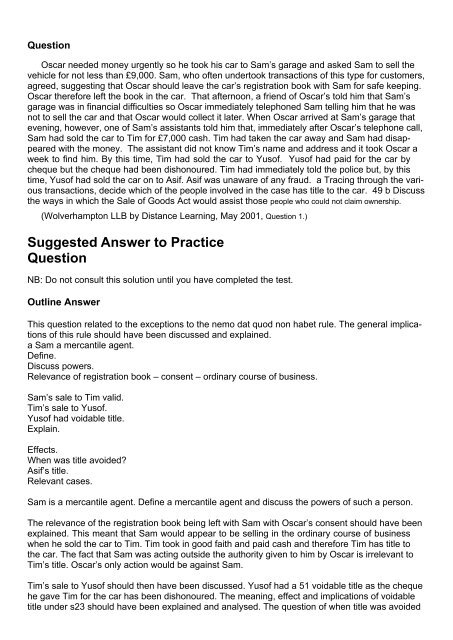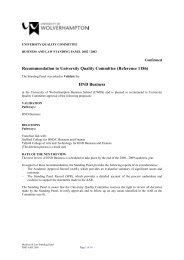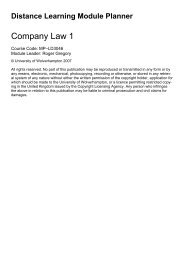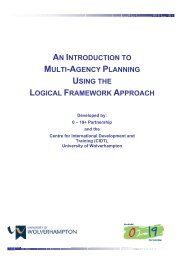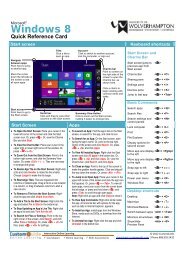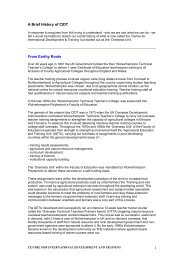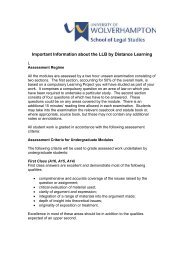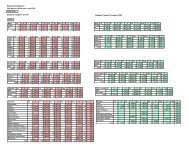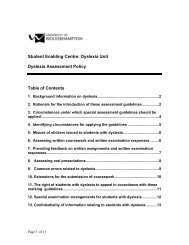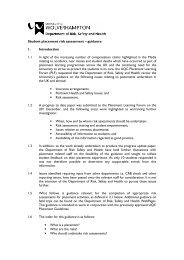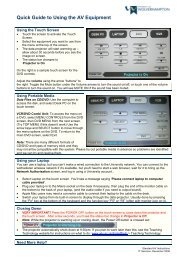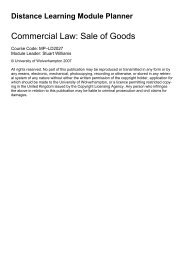Commercial Law: Sale of Goods - ASP2 Home Page - University of ...
Commercial Law: Sale of Goods - ASP2 Home Page - University of ...
Commercial Law: Sale of Goods - ASP2 Home Page - University of ...
Create successful ePaper yourself
Turn your PDF publications into a flip-book with our unique Google optimized e-Paper software.
Question<br />
Oscar needed money urgently so he took his car to Sam’s garage and asked Sam to sell the<br />
vehicle for not less than £9,000. Sam, who <strong>of</strong>ten undertook transactions <strong>of</strong> this type for customers,<br />
agreed, suggesting that Oscar should leave the car’s registration book with Sam for safe keeping.<br />
Oscar therefore left the book in the car. That afternoon, a friend <strong>of</strong> Oscar’s told him that Sam’s<br />
garage was in financial difficulties so Oscar immediately telephoned Sam telling him that he was<br />
not to sell the car and that Oscar would collect it later. When Oscar arrived at Sam’s garage that<br />
evening, however, one <strong>of</strong> Sam’s assistants told him that, immediately after Oscar’s telephone call,<br />
Sam had sold the car to Tim for £7,000 cash. Tim had taken the car away and Sam had disappeared<br />
with the money. The assistant did not know Tim’s name and address and it took Oscar a<br />
week to find him. By this time, Tim had sold the car to Yus<strong>of</strong>. Yus<strong>of</strong> had paid for the car by<br />
cheque but the cheque had been dishonoured. Tim had immediately told the police but, by this<br />
time, Yus<strong>of</strong> had sold the car on to Asif. Asif was unaware <strong>of</strong> any fraud. a Tracing through the various<br />
transactions, decide which <strong>of</strong> the people involved in the case has title to the car. 49 b Discuss<br />
the ways in which the <strong>Sale</strong> <strong>of</strong> <strong>Goods</strong> Act would assist those people who could not claim ownership.<br />
(Wolverhampton LLB by Distance Learning, May 2001, Question 1.)<br />
Suggested Answer to Practice<br />
Question<br />
NB: Do not consult this solution until you have completed the test.<br />
Outline Answer<br />
This question related to the exceptions to the nemo dat quod non habet rule. The general implications<br />
<strong>of</strong> this rule should have been discussed and explained.<br />
a Sam a mercantile agent.<br />
Define.<br />
Discuss powers.<br />
Relevance <strong>of</strong> registration book – consent – ordinary course <strong>of</strong> business.<br />
Sam’s sale to Tim valid.<br />
Tim’s sale to Yus<strong>of</strong>.<br />
Yus<strong>of</strong> had voidable title.<br />
Explain.<br />
Effects.<br />
When was title avoided?<br />
Asif’s title.<br />
Relevant cases.<br />
Sam is a mercantile agent. Define a mercantile agent and discuss the powers <strong>of</strong> such a person.<br />
The relevance <strong>of</strong> the registration book being left with Sam with Oscar’s consent should have been<br />
explained. This meant that Sam would appear to be selling in the ordinary course <strong>of</strong> business<br />
when he sold the car to Tim. Tim took in good faith and paid cash and therefore Tim has title to<br />
the car. The fact that Sam was acting outside the authority given to him by Oscar is irrelevant to<br />
Tim’s title. Oscar’s only action would be against Sam.<br />
Tim’s sale to Yus<strong>of</strong> should then have been discussed. Yus<strong>of</strong> had a 51 voidable title as the cheque<br />
he gave Tim for the car has been dishonoured. The meaning, effect and implications <strong>of</strong> voidable<br />
title under s23 should have been explained and analysed. The question <strong>of</strong> when title was avoided


